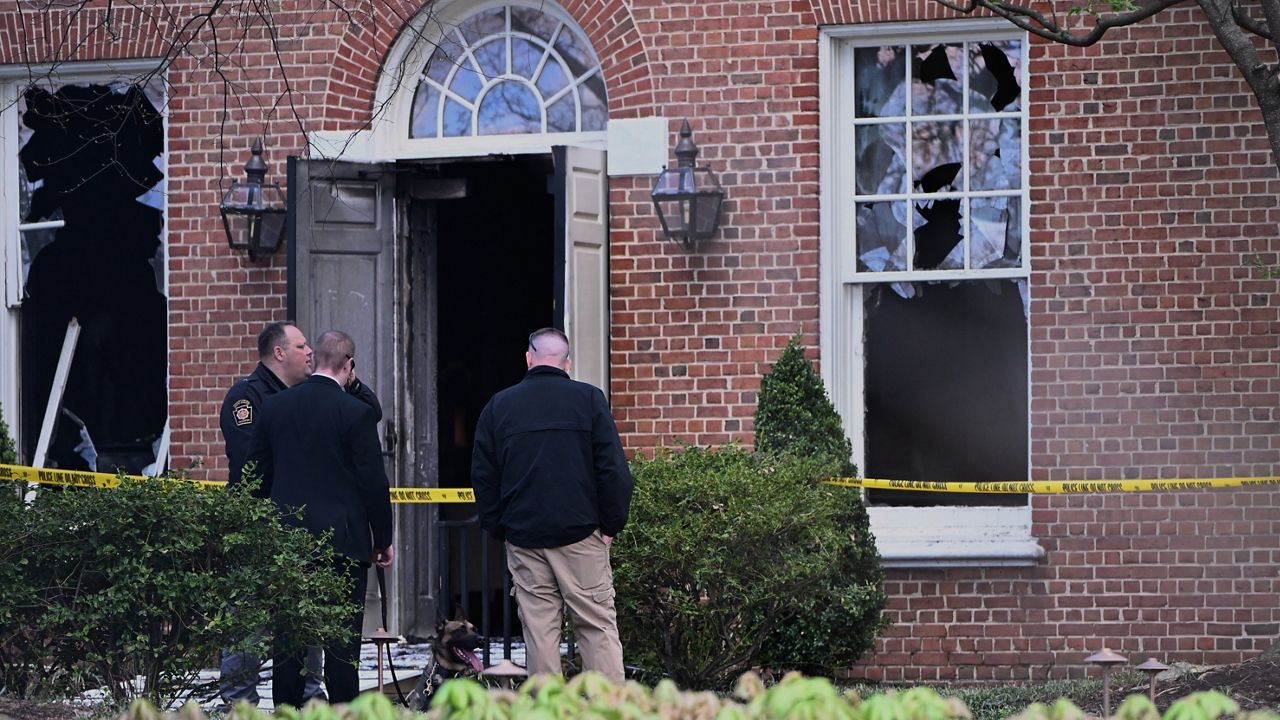President Donald Trump’s proposal that the United States take over the Gaza Strip and transform the war-ravaged Palestinian territory into the “Riviera of the Middle East” after relocating Palestinians “permanently” is drawing strong opposition and outrage from Democrats and world leaders, support from some key Republicans and skepticism from several GOP senators.
“We’ve got to stand in an unwavering manner with Israel, our closest ally in the Middle East. The strong and decisive move is an important step in that regard,” House Speaker Mike Johnson, R-La., said during a news conference Wednesday, emphasizing the GOP stands with the president.
Johnson said he will meet with Israeli Prime Minister Benjamin Netanyahu while he is in Washington to discuss whether the U.S. should take control of Gaza. He said the House is waiting for details on “what exactly that looks like,” but leaving Gaza in its current form runs the risk of another Oct. 7, 2023-style attack either by Hamas or another affiliate of Iran.
“It just makes sense to make the neighborhood there safer,” Johnson said. “It’s common sense.”
South Carolina Rep. Nancy Mace wrote on social media that the U.S. should “turn Gaza into Mar-A-Lago,” Trump’s Florida country club and residence.
Trump laid out his plan Tuesday evening during a news conference with Netanyahu, declining to rule out sending U.S. troops into Gaza and demanding that Arab nations accept the roughly two million Palestinians who call Gaza home. The president said he envisioned a future where “the world’s people” live in the territory “in a beautiful community that's safe and secure,” describing Gaza after more than a year of bombardment by Israel “a hellhole.”
"Everybody loves it," Trump said on Wednesday morning in the Oval Office during an unrelated event. World leaders and foreign ministries across the globe have denounced Trump’s plan, with many key allies and geopolitical adversaries issuing statements that the mass displacement of Palestinians is not an acceptable approach and reiterating their support for a two-state solution.
Reports out of Gaza indicated Palestinians, many returning to their homes for the first time in months amid the recently negotiated ceasefire, were outraged by Trump’s proposal and strongly opposed being forced from their homes again. International law forbids the forced removal of populations.
Republican support for Trump’s plan was echoed by some in the Senate. Tennessee Sen. Marsha Blackburn wrote on X that “President Trump stands with Israel and is committed to ensuring historic and lasting peace. He will eliminate Hamas terrorists and create economic prosperity.”
Sen. Lindsey Graham, R-S.C., a longtime ally of the president known for his aggresive foreign policy, did express some hesitancy, but said he’d keep “an open mind.”
“I think most South Carolinians would not be excited about sending Americans to take over Gaza,” Graham told Jewish Insider.
And Sen. Rand Paul, R-Ky., a conservative generally opposed to U.S. involvement in conflicts abroad, said the U.S. has “no business contemplating yet another occupation to doom our treasure and spill our soldiers blood.”
“I thought we voted for America First,” Paul wrote.
North Carolina Sen. Thom Tillis called the idea “a bit of a stretch” and questioned if it would even be beneficial to Israel. And Missouri Sen. Josh Hawley said he didn’t think it was the best use of U.S. resources.
Most Democrats in both the House and Senate strongly disagreed with Trump.
“Palestinians aren’t going anywhere,” Rep. Rashida Tlaib, D-Mich., wrote on X. The first Palestinian American woman to serve in Congress, Tlaib added that “this president can only spew this fanatical bulls--- because of bipartisan support in Congress for funding genocide and ethnic cleansing. It’s time for my two-state solution colleagues to speak up.”
Texas Rep. Al Green also described Trump’s proposal as “ethnic cleansing” in a speech on the House floor on Wednesday and said he planned to introduce articles of impeachment against the president. Though Trump was impeached twice during his first term when Democrats controlled the House, the likelihood of an impeachment inquiry with a Republican-controlled Congress is unlikely.
“Ethnic cleansing is not a joke, especially when it emanates from the president of the United States, the most powerful person in the world,” Green said. “When he has the ability to perfect what he says, ethnic cleansing in Gaza is no joke, and the prime minister of Israel should be ashamed knowing the history of his people, to stand there and allow such things to be said.”
“Ethnic cleansing has been a crime against humanity,” Green added, punctuating his remarks by periodically thrusting his walking cane into the air.
Sen. Chris Coons, D-Del., said Trump’s idea that the U.S. take over Gaza while also advocating for the end of the humanitarian U.S. Agency for International Development is “insane.” Sen. Chris Murphy, D-Conn., decried the possibility of sending U.S. troops to Gaza as “a bad, sick joke.”
But one Democratic senator expressed support for Trump’s idea and remained open to sending U.S. troops to take control of Gaza: Pennsylvania Sen. John Fetterman.
“The Palestinians have refused, or they’ve been unwilling to deliver a government that provided security and economic development for themselves,” Fetterman said, according to Jewish Insider. “They allowed [the Oct. 7, 2023 attack on Israel] to occur, and now Gaza has to be rebuilt. Where are the people going to live? Where are they going to go? So it’s part of a conversation with where they’re at right now.”
“I don’t know what the role [of U.S. forces] is, but they’re obviously a part of it, and I fully support,” Fetterman added.
The war in Gaza, which was triggered by Hamas' Oct. 7 attack into Israel, has killed over 47,000 Palestinians, according to local health officials, making it by far the deadliest round of fighting in the history of the conflict. The initial Hamas attack killed some 1,200 Israelis.
The war has forced some 1.7 million Palestinians — around three quarters of the territory's population — to flee their homes, often multiple times. That is well over twice the number that fled before and during the 1948 war that resulted in Israel’s founding. Palestinians call that expulsion the Nakba, Arabic for “catastrophe.”
The Associated Press contributed to this report.











